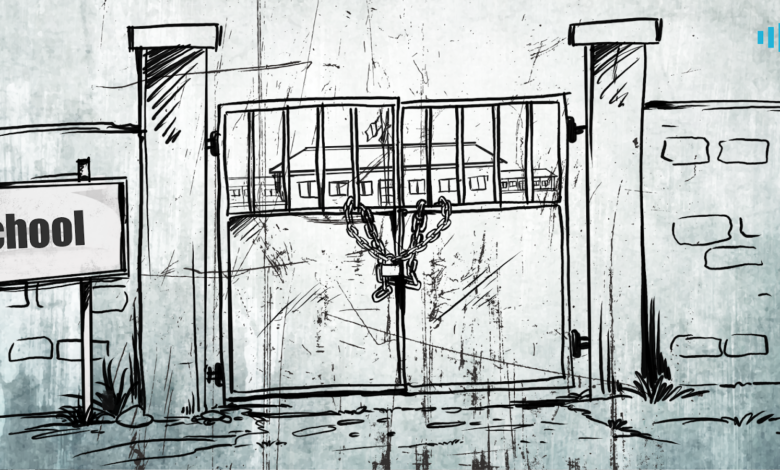Armed Violence Closes Over 14,000 Schools In Africa, Leaving Millions Without Education
More than 14,000 schools have been shut down across West and Central Africa due to armed violence and insecurity, according to a report by the Norwegian Refugee Council (NRC). The closures are depriving millions of children of education, further compounding the long-term impacts of conflict in the region.

Education in conflict zones across West and Central Africa is increasingly under threat. According to a recent report by the Education in Emergencies Working Group (EiEWG), armed violence has forced the closure of 14,364 schools across 24 countries in the regions as of June 2024, significantly affecting the education of millions of children. This marks a significant increase from 2023 when 13,200 schools were closed. The Norwegian Refugee Council (NRC), through a statement issued by Ousmane Drabo, its Regional Media Adviser, on Monday, Sept. 9, has called for urgent international efforts to safeguard children’s right to education in these regions.
The deliberate targeting and occupation of schools have created an environment of fear. “Education is under siege in West and Central Africa. The deliberate targeting of schools and the systemic denial of education because of conflict is nothing short of a catastrophe. Every day that a child is kept out of school is a day stolen from their future and from the future of their communities,” Hassane Hamadou, NRC’s Regional Director for West and Central Africa, emphasised the gravity of the situation in the statement.
HumAngle’s ongoing coverage of conflict-affected communities shows how these school closures represent more than just a disruption of learning; they are a sign of how armed groups have used education as a battleground, weaponising the right to learn by targeting students, teachers, and educational infrastructure.
The situation is particularly dire in the DRC. The NRC statement shows that 1,457 schools have been closed since January 2024 in the country, leaving over 500,000 students and 12,700 teachers in neglect. It adds that armed groups are reportedly occupying school buildings, further disrupting the learning process and creating dangerous conditions for children and educators.
Cameroon faces similar challenges, with 1.4 million children in urgent need of educational assistance due to the compounded effects of multiple crises. According to an analysis of Education Cluster, NRC, and UNICEF data, In Burkina Faso, one in four schools were closed in 2023, affecting more than 2.5 million children across the region.
The school closures are exacerbating the vulnerabilities of children in conflict zones, particularly girls, who are at heightened risk of early marriage and sexual exploitation. Without access to education, girls are more likely to experience gender-based violence and poverty. The recruitment of children by armed groups not only disrupts their education but also perpetuates cycles of poverty and instability, making it harder for families and communities to recover from conflict.
The NRC highlights that without urgent intervention, the region risks losing an entire generation of educated youth, which will have profound socio-economic consequences in the long term.
Despite the alarming rise in school closures, there are some signs of progress. The NRC statement reveals that in Burkina Faso, approximately 1,300 schools have reopened between October 2023 and June 2024, allowing thousands of children to return to their classrooms. Similarly, a decrease in violence has led to fewer attacks on schools in Mali and the Central African Republic (CAR) during the 2022-2023 period.
“The reopening of schools in Burkina Faso and the reduction in attacks on education in Mali and the Central African Republic show that progress is possible,” said Hamadou. “We must build on this momentum to ensure that all children have access to safe and inclusive quality education.”
On the International Day to Protect Education from Attack, the NRC calls on the international community and parties involved in conflict to prioritise the protection of schools and educational infrastructure. Hamadou urged that immediate and sustained action is needed to protect students and teachers, end the occupation of schools, and provide sufficient funding for education programs in conflict-affected regions.
“Education is a lifeline for children in crisis. We cannot allow violence to rob them of their future,” Hamadou stressed.
Support Our Journalism
There are millions of ordinary people affected by conflict in Africa whose stories are missing in the mainstream media. HumAngle is determined to tell those challenging and under-reported stories, hoping that the people impacted by these conflicts will find the safety and security they deserve.
To ensure that we continue to provide public service coverage, we have a small favour to ask you. We want you to be part of our journalistic endeavour by contributing a token to us.
Your donation will further promote a robust, free, and independent media.
Donate HereStay Closer To The Stories That Matter




